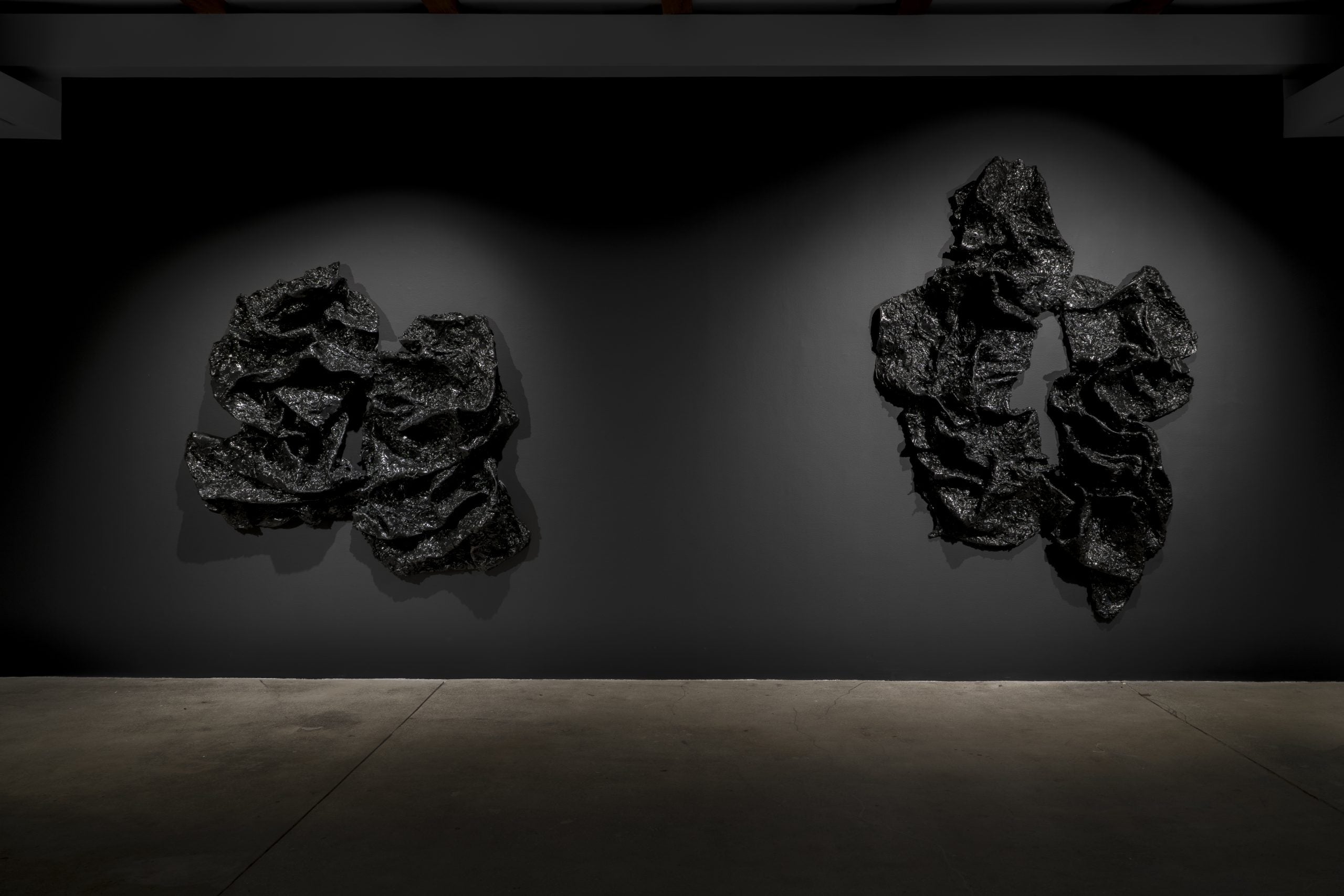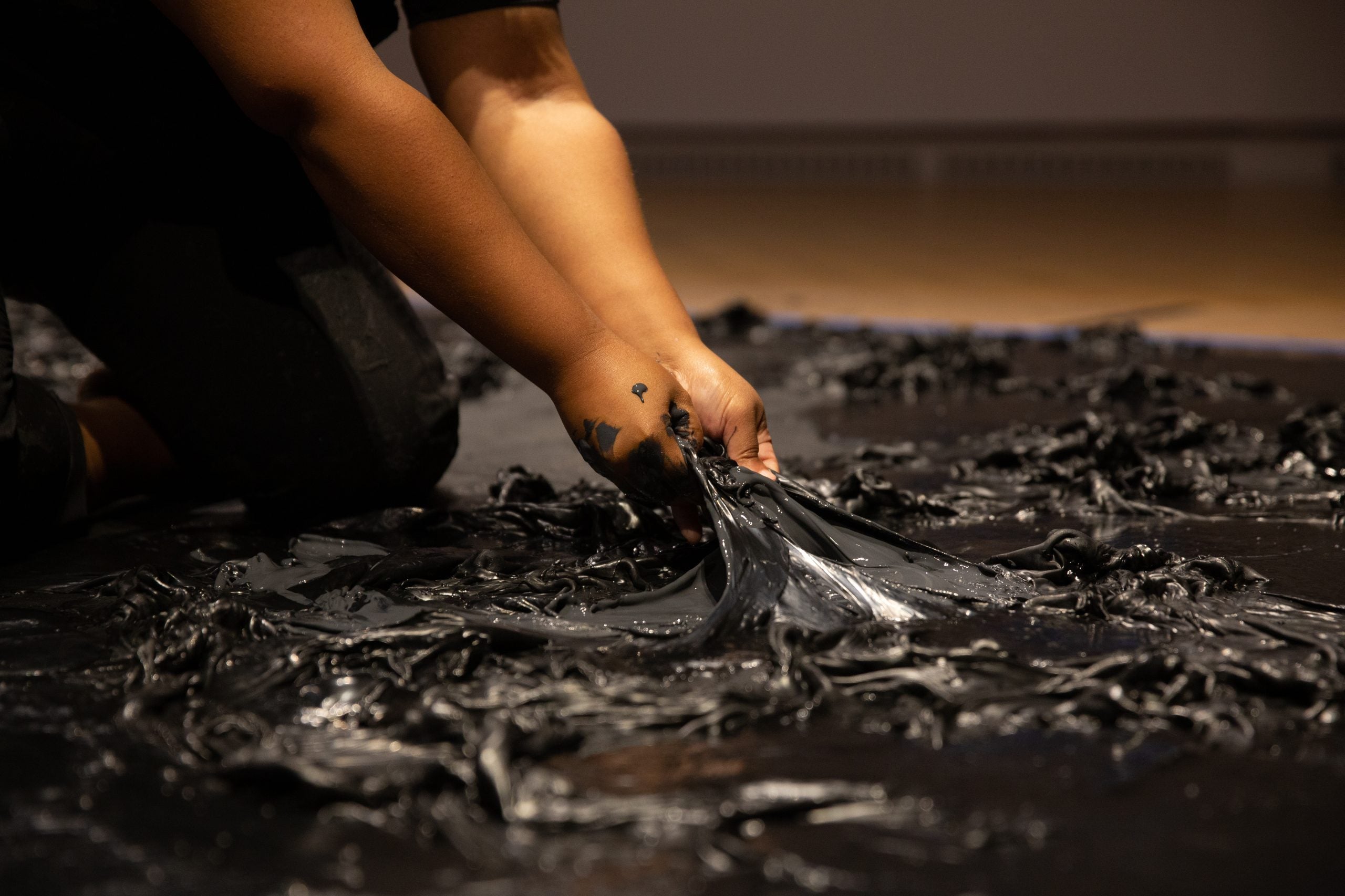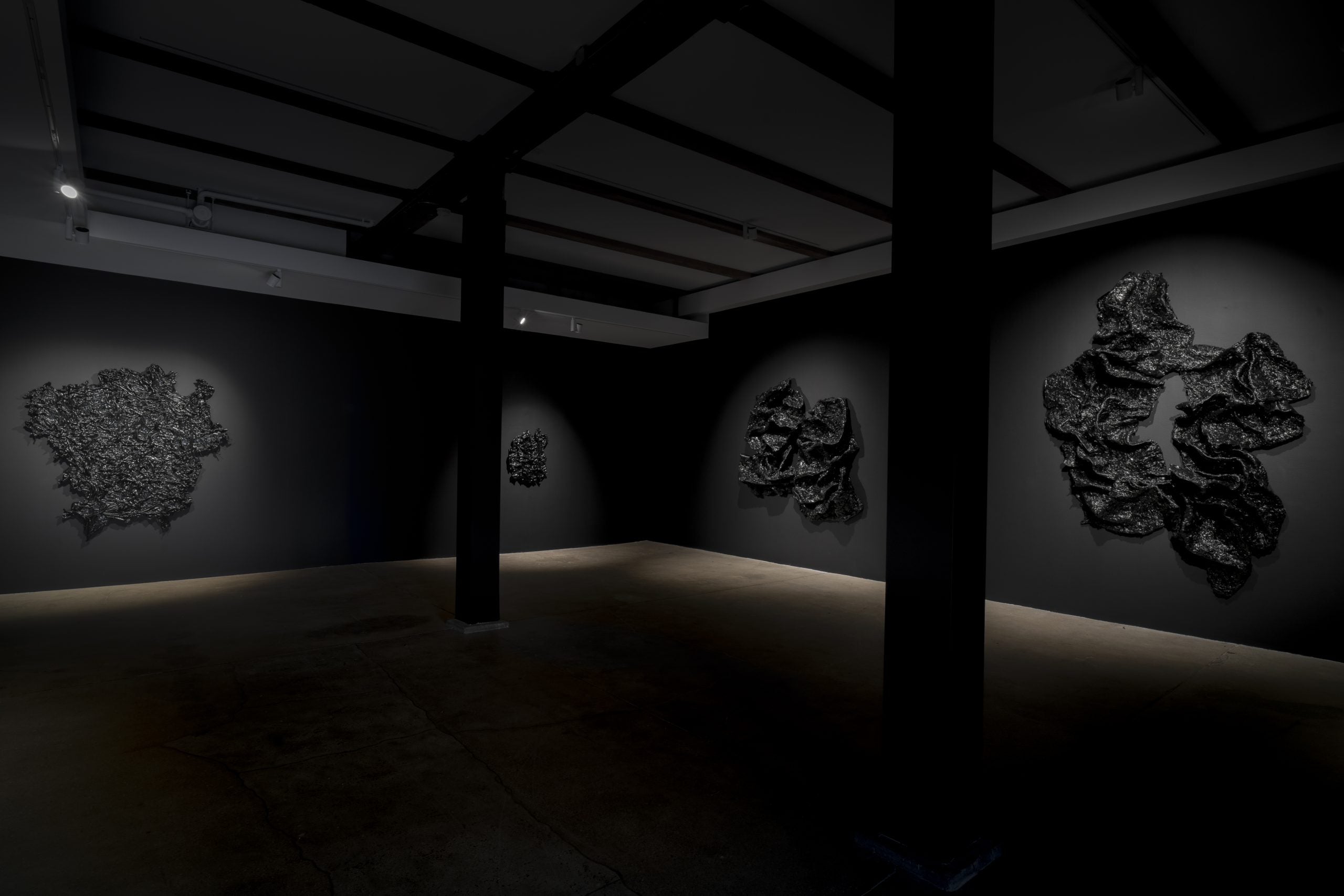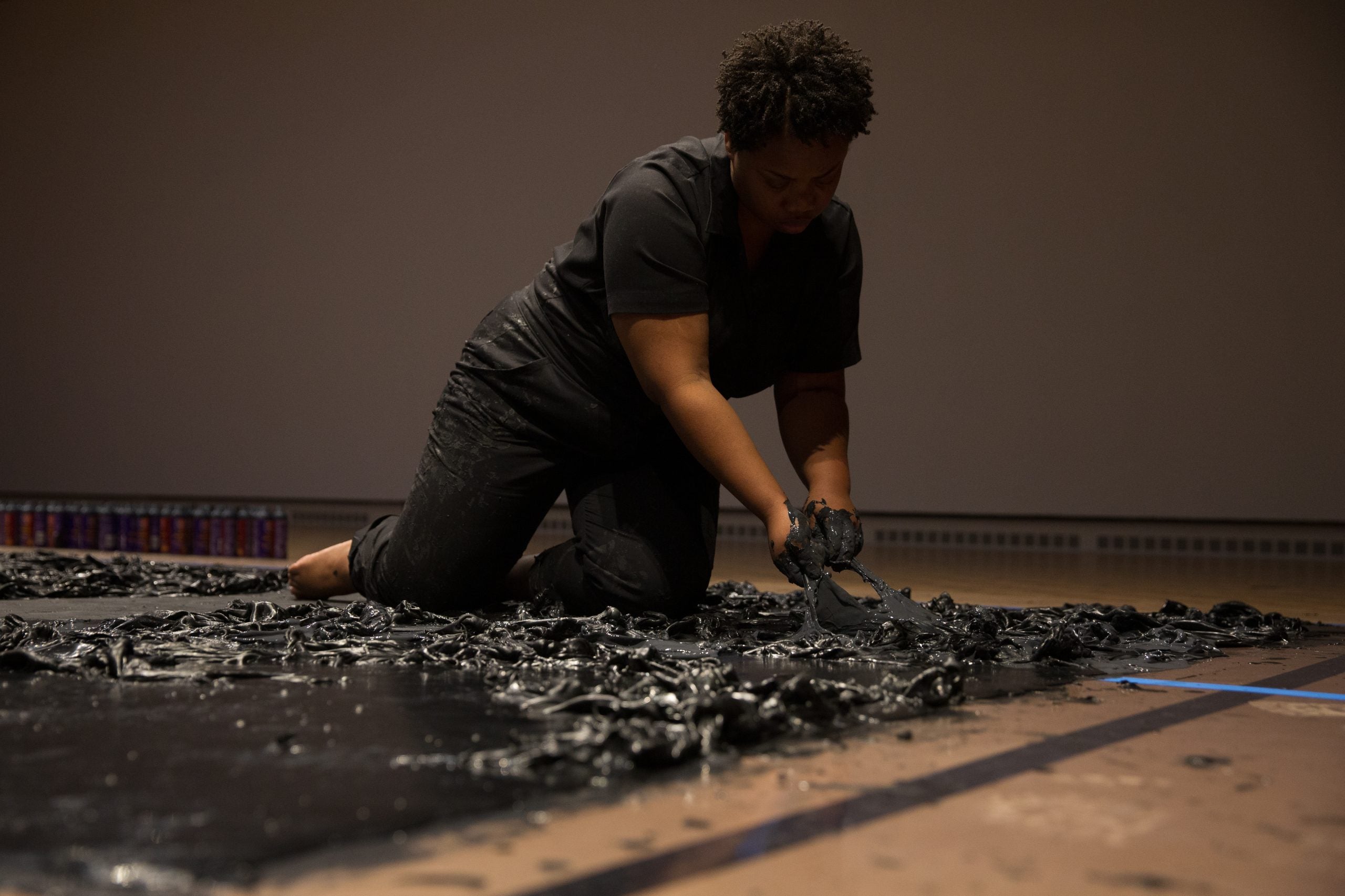
Allana Clarke grew up transfixed by magic. The artist watched women in her life shapeshift with the help of jams, jellies, and glues.
“I didn’t really question it at the time because it’s like every woman around me had extensions,” she told ESSENCE.
She accepted “that idea that you have to change something about yourself or transform yourself” without question. “They were beautiful,” she added.
Sacrifices made to enhance that beauty seemed a natural part of coming of age to Clarke as a child. The singe of the hot comb, the tension of the yanking, the irritation from the glue, the scorching of the relaxer, it was all normal.

Now, after growing up to be an accomplished artist, she is revisiting the beauty rituals she observed in childhood by crafting sculptures out of the type of weave-bonding glue that has blocked pores and damaged follicles for generations.
Clarke has a history of using materials she has a personal connection to. Her current show, titled Allana Clarke: I Feel Everything, speaks to tender heads across the globe.
Her practice is inspired by “traumatic memories around hair and Black beauty standards.” Some of those memories are collective. Others are deeply personal.
“For me, those processes became very dehumanizing,” said Clarke. “I started to lose my hair from all of these really aggressive chemical processes constantly.”
Clarke was well into adulthood before starting her natural hair journey. She was among many women reevaluating their relationship to their hair care routines. “I think so many of us, just kind of accepted it, accepted what we inherited, what was passed down to us as just fact as the way it should be. But there, you know, in the last decade or so, has absolutely been a revolution where so many Black women are just wearing their natural hair [and] are creating spaces of community, and spaces to talk about these issues.”

The change was an opportunity to explore the person she wanted to look like and not the person she thought she should look like.
“This also has happened to so many women,” she continued. “You then kind of become even more dependent on these structures, and you lose yourself within them.”
The possibilities were exciting but intimidating. “Severing myself from those structures, from someone else’s standards, it was really scary,” she admitted. “It wasn’t until my thirties that I saw my actual natural hair for the first time.”
Clarke tested out techniques on the canvas the way she tested new styles on her hair. She drove to “every beauty supply store, within a 10, 20-mile radius, collecting all of the glue, bringing it into the studio and really just experimenting with it,” as an NXTHVN resident.
The goal of her exhibition is not to condemn these beauty practices but to examine the pressures associated with them.

“Inherently, there’s absolutely nothing wrong with transforming your hair in this way,” Clarke declared. She acknowledged the joy it can bring people to install a 30-inch bust down or lay their baby hairs. “It can be extremely fun and pleasurable and very playful,” she said.
“But for me, the aspect that seems and can become really corrosive is when, the kind of underneath of it all, it’s telling you basically that you know, you’re not good enough, or how you are inherently is not enough,” she added.
“Look at legislation that is actually against natural hair,” she continued. “It kind of gets absorbed into our social and political systems.”
Those who do not adhere to mainstream beauty standards are still discriminated against in modern society.

“If your hair is not pin-straight, long, doesn’t look a specific way, you are labeled unprofessional, or you may not be able to navigate the world in the same way that others are,” said Clarke. She sees a world where hair discrimination disappears one day. Legislation introduced to Congress by New Jersey Representative Bonnie Watson Coleman has attempted to bring that world to fruition.
“The Crown Act, that’s definitely bringing this issue to the forefront of our culture, so people can really understand how complicated and complex it is,” she said,
“For me, that becomes a step forward.”
Allana Clarke: I Feel Everything is on display at the Kavi Gupta Gallery in Chicago April 20 – May 27, 2023.